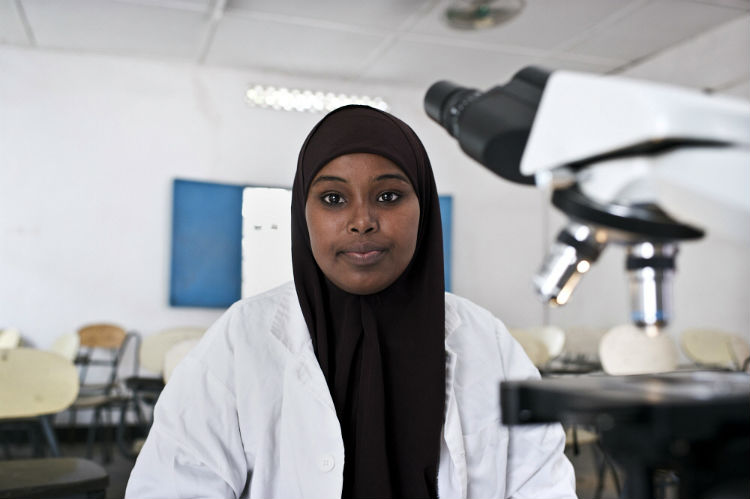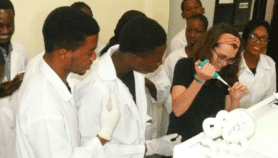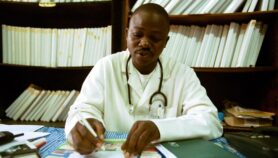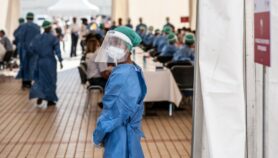By: Samuel Hinneh
Send to a friend
The details you provide on this page will not be used to send unsolicited email, and will not be sold to a 3rd party. See privacy policy.
[ACCRA] African universities have made progress in addressing gaps related to research infrastructure and systems, according to a report published by the Liverpool School of Tropical Medicine (LSTM).
The report resulted from a review by the Capacity Research Unit (CRU) at the LSTM of research support systems and structures of universities involved in the Malaria Capacity Development Consortium in Africa to find gaps which could be addressed.
“They had made most progress in improving support for research applications and project management, and made least progress in developing research strategies.”
Imelda Bates, Liverpool School of Tropical Medicine (LSTM)
Imelda Bates, the head of the CRU and a professor of tropical haematology at LSTM in an interview with SciDev.Net on 8 November, says the study was done to help the universities to plan systematically in how to strengthen their research capacity.
The report published on 2 September resulted from rigorous assessment of the universities’ strengths and gaps to identify the need for research capacity ‘change’ agents or teams that are able to influence university decision-making and university-wide buy-in vision and actions for strengthening institutional research capacity.
Bates explains that data for the report were collected from January 2015 to May 2016, and were built on a baseline assessment undertaken in 2014 in the four universities — each located in Ghana, Malawi, Senegal and Tanzania.
"They had made most progress in improving support for research applications and project management, and made least progress in developing research strategies and in dissemination and uptake of research outputs,” Bates tells SciDev.Net. "It is likely that other African universities and research institutions may face similar problems so these would be good target areas for support from governments and other funders.”
The report also mentions that intermediate progress was made towards strengthening research infrastructure, research skills training and research-related management of human resources.
But the report makes recommendations for promoting research strengthening. “Future programmes for strengthening institutional research capacity should incorporate mechanisms for inter-institutional sharing of challenges and solutions through exchange visits and joint workshops,” the report says.
Eric Yeboah, a lecturer at the Department of Land Economy at the Kwame Nkrumah University of Science and Technology, says universities need freedom to set parameters such as competitive funding and quality of publications emanating from research.
Isaac Yaw Opoku, an economist and researcher at Jayee University College, Ghana, says African governments need to use final research work produced by undergraduate and graduate students to tackle problems on the continent.
He states that research is central to the growth of every university, therefore universities need to invest in research to produce proper output.
"Research is not a solitary activity, but an act of a community, so when we all come together as one and build the image of research, it will help Ghana to address socio-economic challenges,” Opoku adds.
This piece was produced by SciDev.Net’s Sub-Saharan Africa English desk.
References
Malaria Capacity Development Consortium: Strengthening Research Management and Support Systems (RMSS) in African Universities: final overview report for universities in Ghana, Malawi, Senegal and Tanzania: January 2015 – May 2016 (Liverpool School of Tropical Medicine, 2 September 2016)














